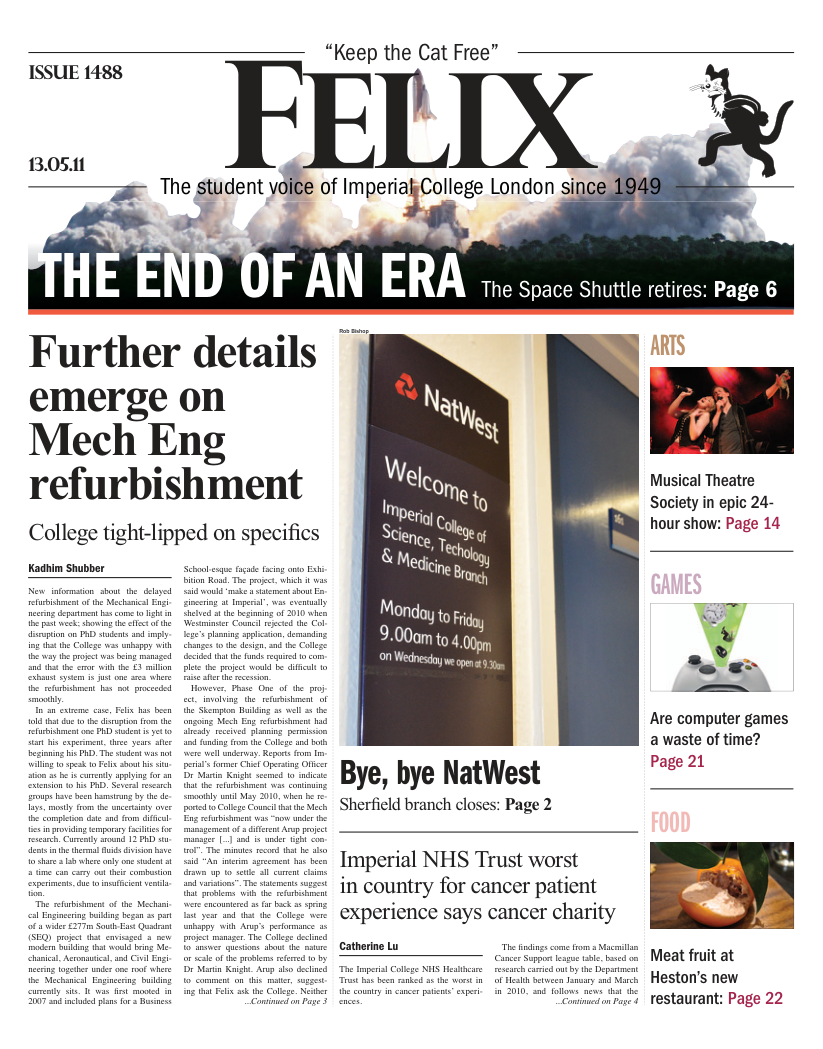What is the website for?
The relationship between the print and web version of Felix
A common declaration amongst many people in publishing is that ‘print is dead’. By which they mean the idea that the public will continue to read content on paper in the future is laughably ignorant. While the print edition of this cat probably has quite a few years in it yet, we would be foolish to try and resist the inexorable push and pull towards web-based content.
So you may have noticed that Felix’s website has been recently redesigned, increasing our potential to finally get serious about online journalism. The design is much more user-friendly and there are many more additional features. But now that we’ve reached this point, let’s take a look back at where we started and where we might hope to get to.
When many of Felix’s senior staff began at this university, it was impossible to read Felix online. This situation continued for two years – which is not to deride the editors at the time, quite simply the infrastructure didn’t exist to deliver the content online. A useable website was constructed last year, along with a complete online archive of (almost) every issue of Felix. What we have seen since then is that our online readership has grown week-on-week as students and staff become more accustomed to reading the newspaper online.
So where do we go from here? Let’s be bold. The online edition far surpasses the print edition in every measure except sentimentality and profitability. Felix can access a far wider audience online and it allows us to better understand what topics are interesting to our readers. We are able to provide multi-layered content: video, audio, and links to relevant or interesting information on other sites. The reader is able to directly query the author, and reader discussions can sometimes be as informative as the article that sparks the debate.
Which does not mean that there is no argument for the print edition. Profitability is no trifling factor; the advertising prices that a small website like Felix would command pale in comparison to the print edition. The reason for this, indirectly, is sentimentality, again not a factor to be waved aside. The print edition of Felix is an institution. The weekly ritual of thousands of Imperial students and staff leafing through the pages of this newspaper is something that connects us all. For as long as Felix is financially able to do a print version, for this powerful sentimental reason, we would urge future Editors to continue to do so.
But facts are facts. It is not possible to maintain the print version at its current standard and run a Guardian-esque news website – there are simply not enough hours in the day. One day, we hope in the distant future, the students of this university will have to decide which they prefer.






